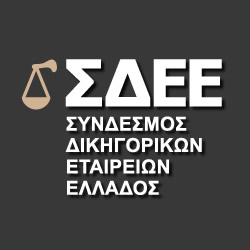(Published in International Family Law Review, May 1998)
Aiming at the shift of the resolution of the consequences of marital breakdown away from courtrooms, and in compliance with the European spirit that promotes amicable solutions (especially for the sake of children) Greek legislators have taken the first steps by enacting a compulsory attempt for conciliatory solutions in cases of parental care and communication rights, and financial disputes.
Parental care and communication rights
Article 681C para 2 of the Civil Procedure Code (as amended by Art 38 of Law 2447/96) provides for a compulsory preliminary procedure where there is a dispute as to the exercise of parental care rights during the marriage, in cases of divorce or nullity or for children born out of wedlock and/or the communication rights.
The compulsory preliminary procedure includes:
- a research stage by officers of the relevant social service as to the living conditions of the minor, and the subsequent submittance to the court of pertinent report analysis (accompanied where necessary by a psychiatrist’s report);
- an attempt by the judge to reach a conciliatory solution to the dispute by giving a formal interview to the minor, the litigants and their lawyers within a time-period of 8 days prior to the hearing of the case.
If the above requirements are not met the hearing cannot take place.
Financial disputes
Article 214A of the Civil Procedure Code (as it is replaced by Art. 6 para 2 of Law 2479/1997) provides for conciliatory solutions in private disputes where there are actions subject to the ordinary procedure of the multi-member court of first instance, and for which the substantial law allows the parties to reach a conciliatory arrangement. Such actions cannot be heard without a prior attempt by the parties to reach an arrangement (Art. 214A para 1). In family law such arrangements can apply to financial disputes concerning claims for participation in the acquisitions obtained by either spouse during the marriage.
Under the conciliatory procedure the respondent is summoned and has to appear at the office of the plaintiff’s lawyer on a certain day and time in order to reach a compromise solution to the dispute. The date of the meeting is fixed within the time-period from the tenth day after the service of the subpoena to the twentieth day before the day of the hearing (para 3). The litigants together with their lawyers (or represented by them), assisted if they wish by a third person of a common choice, meet to examine the dispute as a whole and any potential crossaction by the respondent, without being bound by the provisions of the substantial law. They can use all appropriate means to verify all critical events and the points of agreement or disagreement, as well as the accepted or disputed outcomes, in order to achieve a mutually acceptable solution to the dispute in whole or in part (para 4).
Where the litigants reach a solution to the dispute in whole or in part, a report is drawn in which are entered the subject-matter[s] of the agreement and especially the kind of acknowledged right[s], the performance due by the parties, and any potential terms as to the fulfilment of the agreement. The agreement is confined to the subject-matter of the legal dispute (para 5). Any of the litigants can ask the multi-member court of first instance to ratify the minutes of the agreement, and if certain requirements are met then the ratification of the report constitutes an enforceable title. If the report is ratified then the trial is set aside. If the ratification covers only part of the dispute then only that part is set aside (para 6).
Where the litigants fail to reach an agreement, a joint report of failure of the attempt is drawn and signed. If such a report is not drawn, the lawyers of each litigant draw a declaration to the same effect where they can also state the reasons for the failure to reach an agreement. The joint report or the declarations are filed together with the pleadings at the hearing of the case (para 7).
The action can proceed at a hearing only: (a) if the joint report or declarations show that the attempt to reach an agreement failed in all or in part; and (b) if a litigant refused to take part or did not appear to participate at the attempt (para 8).
Article 214A will come into force for actions filed from 16 September 1999 onwards.






